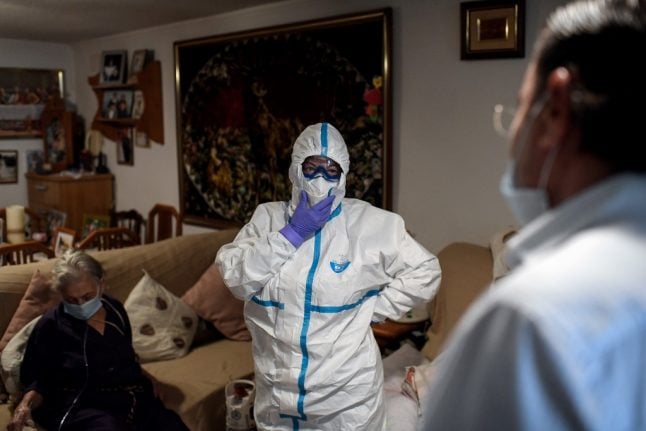So far, 21,282 people have succumbed to the pandemic in Spain, which has suffered the third-highest number of deaths in the world after the United States and Italy.
Officials say the numbers tend to go up slightly on Tuesdays following a slight delay in receiving data from the regions on deaths that have occurred over the weekend.
On Monday, Spain registered 399 deaths overnight in what was the lowest figure in four weeks.
Datos sobre #COVID19 en España, desde el primer caso inicial, actualizados a día 21 de abril:
▶Confirmados 204.178
▶Fallecidos 21.282
▶Curados 82.514Información por CC.AA.:https://t.co/CmRdBJDBBV
Más info en⤵https://t.co/GH8nqIFQ4l#EsteVirusLoParamosUnidos pic.twitter.com/9ZgI5JpvVu
— Salud Pública (@SaludPublicaEs) April 21, 2020
The number of confirmed cases now stands at 204,178, the second-highest number in the world after the United States which has registered more than 750,000 infections.

The overall number of hospitalizations (blue), admittance into ICU (yellow) deaths (red) and recoveries (green) are shown in the chart below, which reveals that the curve of the number of hospital admittances is flattening. Data: Ministry of Health.
Medical staff have been particularly exposed in Spain given the lack of protective equipment when the epidemic first took hold, with 31,788 cases among healthcare workers — just over 15 percent of the total, the figures showed.

The graph shows the total number of confirmed cases across Spain. Data: Ministry of Health.
But the number of people who have gotten over the disease has also risen with Spain counting 82,518 recoveries.
Spanish health officials believe the epidemic peaked on April 2nd when 950 people died over 24 hours, nearly three weeks after the government imposed a strict lockdown, effectively confining almost 47 million citizens at home to slow the spread of the virus.
The March 14th lockdown has been twice extended with the government saying it would move for a fresh extension until May 9th, although conditions are to be slightly eased on April 27th to allow children to spend some time outside.
READ MORE: When will it be possible to travel to Spain again?



 Please whitelist us to continue reading.
Please whitelist us to continue reading.
Member comments